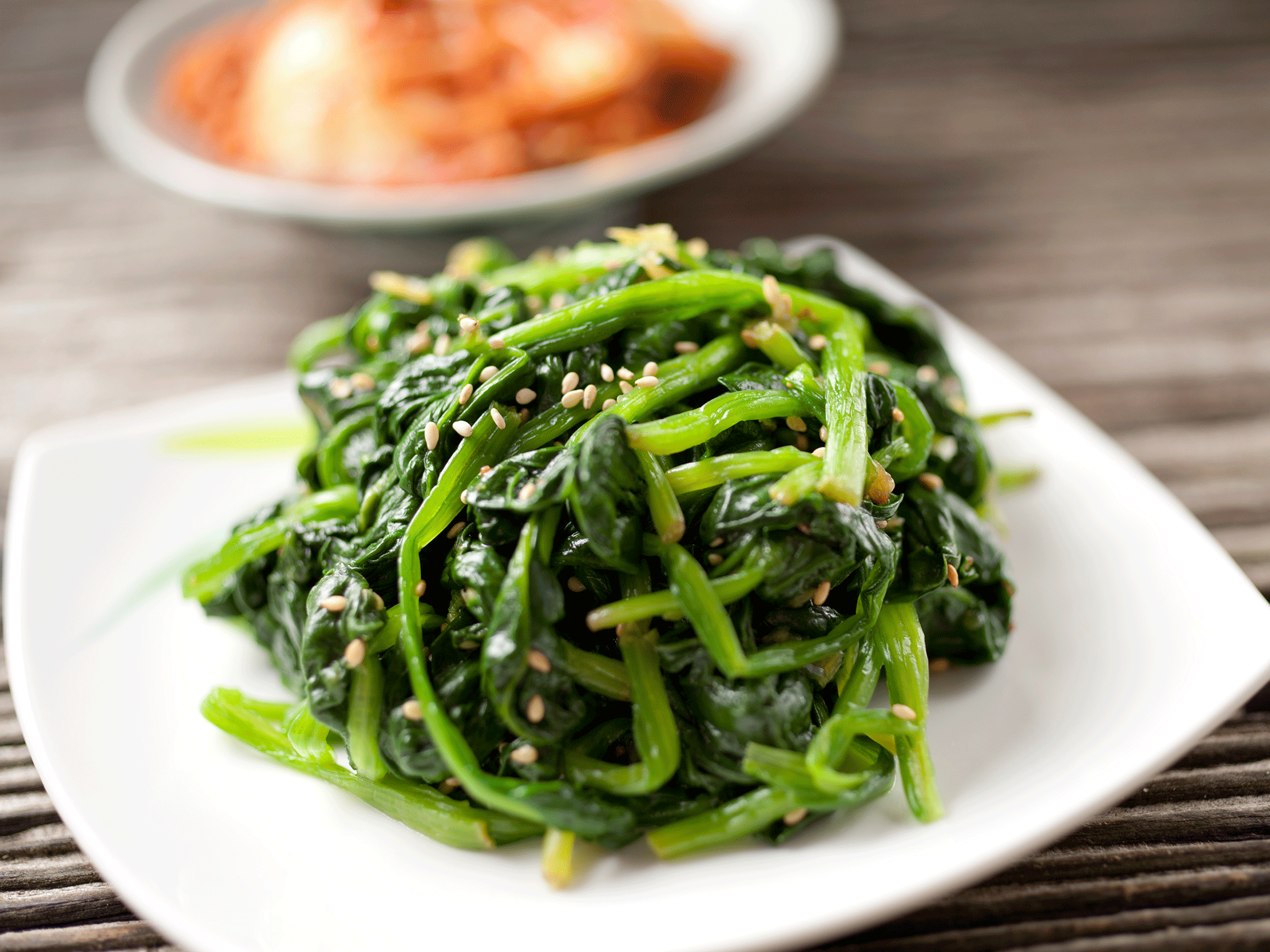Independent reader successfully overturns expert advice against reheating spinach
'Provided proper cooling, storage and reheating takes place, it is fine to reheat spinach,' European Food Information Council admits after student's scientific arguments win the day

Your support helps us to tell the story
From reproductive rights to climate change to Big Tech, The Independent is on the ground when the story is developing. Whether it's investigating the financials of Elon Musk's pro-Trump PAC or producing our latest documentary, 'The A Word', which shines a light on the American women fighting for reproductive rights, we know how important it is to parse out the facts from the messaging.
At such a critical moment in US history, we need reporters on the ground. Your donation allows us to keep sending journalists to speak to both sides of the story.
The Independent is trusted by Americans across the entire political spectrum. And unlike many other quality news outlets, we choose not to lock Americans out of our reporting and analysis with paywalls. We believe quality journalism should be available to everyone, paid for by those who can afford it.
Your support makes all the difference.Advice from a European food safety body to avoid reheating spinach has been overturned after an article in The Independent prompted a student in Hong Kong to embark on an epic struggle in the name of science.
While it might seem like an innocent thing to do, the European Food Information Council (EUFIC) had warned that reheating spinach and other leafy vegetables could potentially lead to the production of a substance, nitrosamines, that can cause cancer and ‘Blue Baby Syndrome’, in which children cannot get enough oxygen in their blood.
After The Independent ran a story that featured their advice, the article was picked up by a newspaper in Hong Kong.
The student, Albert, became concerned when his mother "suddenly stopped eating vegetables" after reading the article as she feared getting cancer from the food she prepared at night to be reheated for the next day for lunch at work.
"I told her, don't be so sensitive on that particular [news]paper. You would first get colorectal cancer first only because of you don't eat veggies," he wrote in an email to The Independent.
"She did not trust me. The whole family did not either.
"I thought, there must be more of them out there who were affected by that news article and... many problems can happen in my opinion."
Albert then raised a "series of complaints" against the Hong Kong newspaper, but they "just shed their responsibility to you, Independent".
Undeterred, Albert then complained to The Indepedent, saying he was “outraged” and describing the suggestion that eating reheated spinach could give you cancer, based on the purported evidence, as “nonsense”.
Our readers’ liaison assistant then pointed to the guidance posted on EUFIC’s website.
At this point, many people would have simply given up.
But Albert refused to admit defeat. Instead, he sent a detailed argument to the EUFIC, complete with two tables of figures.
An EUFIC official has now replied in an email to Albert, saying they have removed the guidance and they “very much appreciate your time and comments which we will take into account when preparing new articles on this topic”.
A EUFIC spokeswoman confirmed the news to The Independent: "We have recently removed this content from our website as the information was out of date and no long reflected the current recommendations from European authorities, whom do not advise against reheating spinach provided proper storage and reheating practices are followed.
"Provided proper cooling, storage and reheating takes place, it is fine to reheat spinach."
She cited an academic paper on the subject, Nitrate and nitrite in the diet: how to assess their benefit and risk for human health, and the European Food Safety Authority’s opinion, which dates from 2010.
Until Albert got in touch, EUFIC’s argument about the dangers of reheating spinach ran like this. Leafy vegetables can contain high concentrations of nitrate, which is harmless but can be converted into nitrites and then nitrosamines, some of which are known to be carcinogenic. These substances can also affect the bloodstream's ability to carry oxygen and in young children can cause a Blue Baby Syndrome. They advised against reheating spinach to minimise the chance of creating nitrosamines.
But, in his email to EUFIC, Albert said he was “a bit disappointed” by the quality of the reasoning behind the guidance and provided his own.
“Nitrate in food can be converted into nitrite with the presence of certain enzymes and bacteria. Nitrite reacts with amino acids to form nitrosamine if the condition is favourable, such as high temperature and acidic environment,” he wrote.
“It is true that the conversion is theoretically correct. But your article is over-generalized to make a conclusion that requires readers to take proactive actions.
“Can you provide the source of research publications that test the level of nitrite/nitrosamine in leftovers after 24-hour storage in the fridge?
“My main argument is, if there aren't any real experiments on this, you do not have enough evidence to change the public's lifestyle. Many people may have been reheating their lunchboxes for a long time in their office pantry.
“You should know toxicology is not only about the presence of a ‘harmful’ substance, but also its dosage! I agree that nitrate has the possibility to turn into nitrites by naturally existing bacteria.
“However, the amount of nitrites that are present at the time of ingestion is what matters or what we should be careful of. Not simply its presence.”
Join our commenting forum
Join thought-provoking conversations, follow other Independent readers and see their replies
Comments